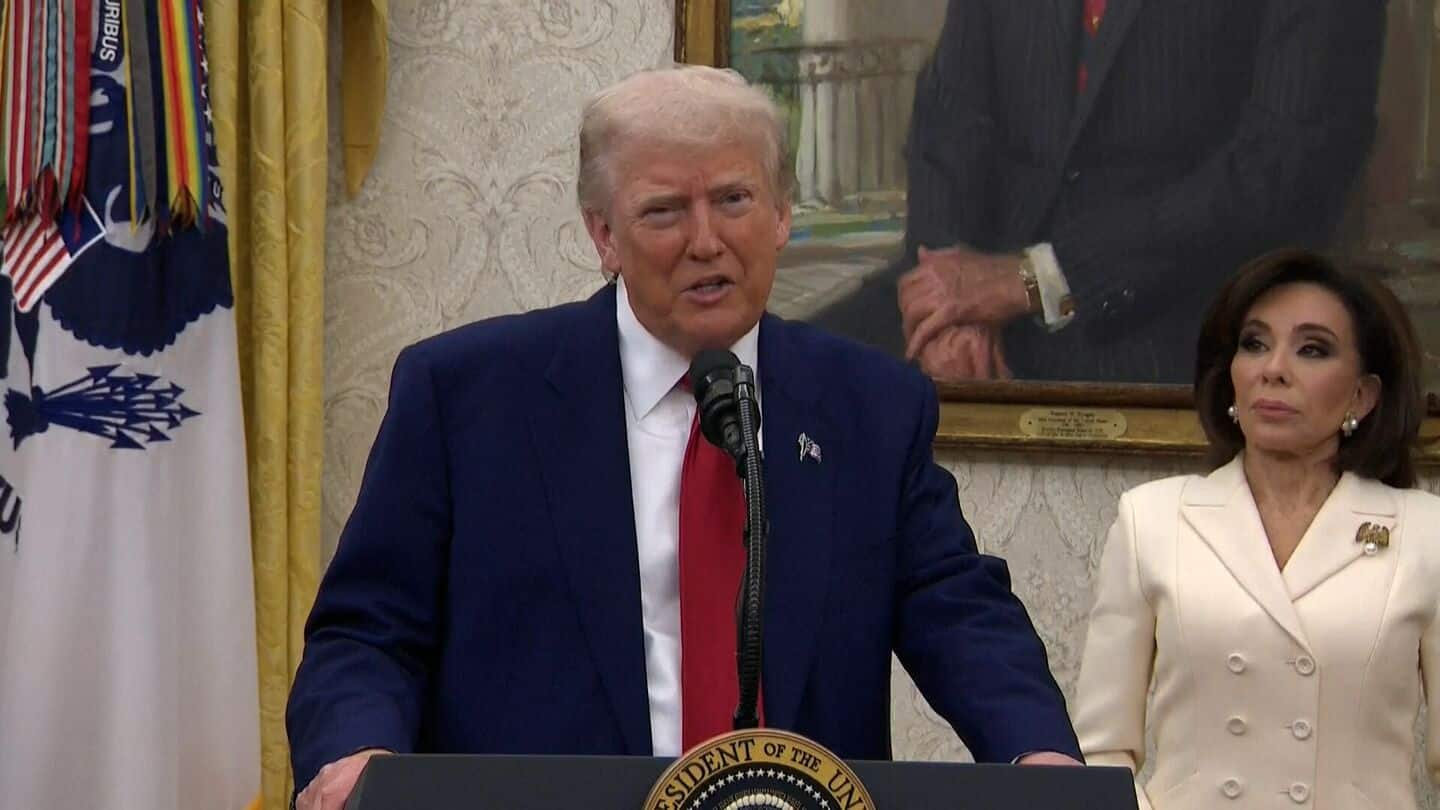
Trump just got grilled on 'TACO' trade—He says 'nasty question'
What's the story
The term "TACO" trade, coined by Financial Times columnist Robert Armstrong, has drawn the ire of US President Donald Trump. The acronym stands for "Trump Always Chickens Out" and refers to his tendency to announce steep import tariffs but later backtrack on those plans. Since April 2, a date Trump dubbed "Liberation Day," he has frequently reversed such tariff announcements.
Market reaction
TACO trade: A market pattern
TACO trade captures a recurring market trend where stocks plummet after Trump threatens to impose tariffs but recover once he backs off. In other words, investors are learning not to panic at every new tariff announcement, as Trump often reverses course, leading to a market rebound. The "TACO" mentality is shaping investment strategies, with analysts noting a growing bullish narrative.
Presidential response
Trump defends his negotiation strategy
When asked about the "TACO" trade during a press briefing, Trump dismissed it as a "nasty question." He defended his tariff decisions by saying, "It's called negotiation." The president argued that if he hadn't imposed a 50% tariff on Europe, they wouldn't be negotiating today. This statement was made in reference to his recent announcements on EU and Chinese tariff rates.
Tariff changes
Trump's tariff adjustments and market reactions
Since his inauguration on January 20, Trump has made over 50 tariff policy changes, many of which were quickly reversed. For instance, he raised tariffs on Chinese goods to as high as 145%, only to reduce them to 30% during a 90-day negotiation period. Last week, he threatened a 50% tariff on European Union products starting June but later postponed it to July 9 for talks.
Legal ruling
Court blocks Trump's broad import tariffs
On Wednesday, the US Court of International Trade blocked Trump's plan to impose heavy taxes on imports from nearly every country. A panel of three judges ruled that Trump overstepped his authority by using the 1977 International Emergency Economic Powers Act to declare a national emergency as justification for broad tariffs. The court's decision blocks new tariffs Trump imposed last month on nearly all US trading partners, but it does not affect earlier tariffs on China, Mexico, and Canada.